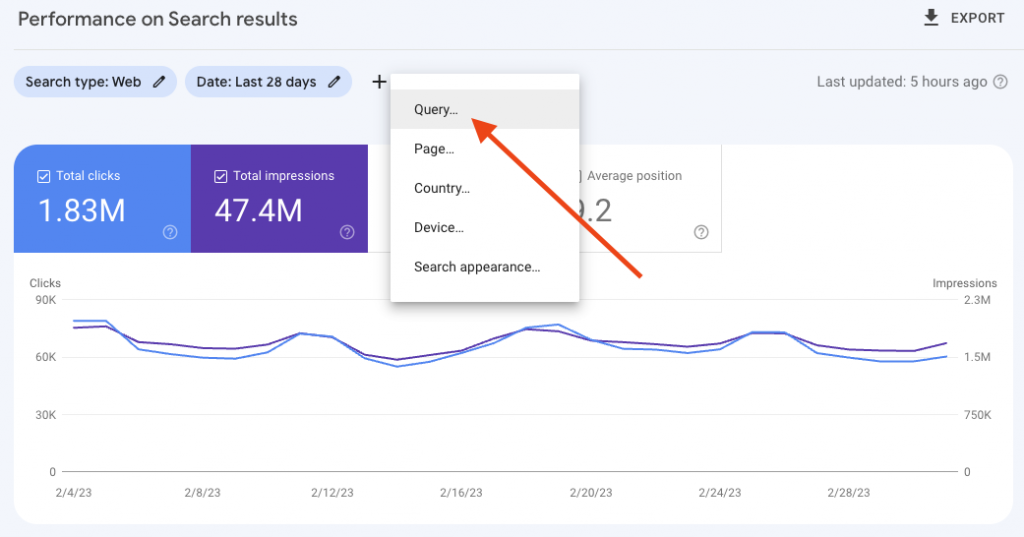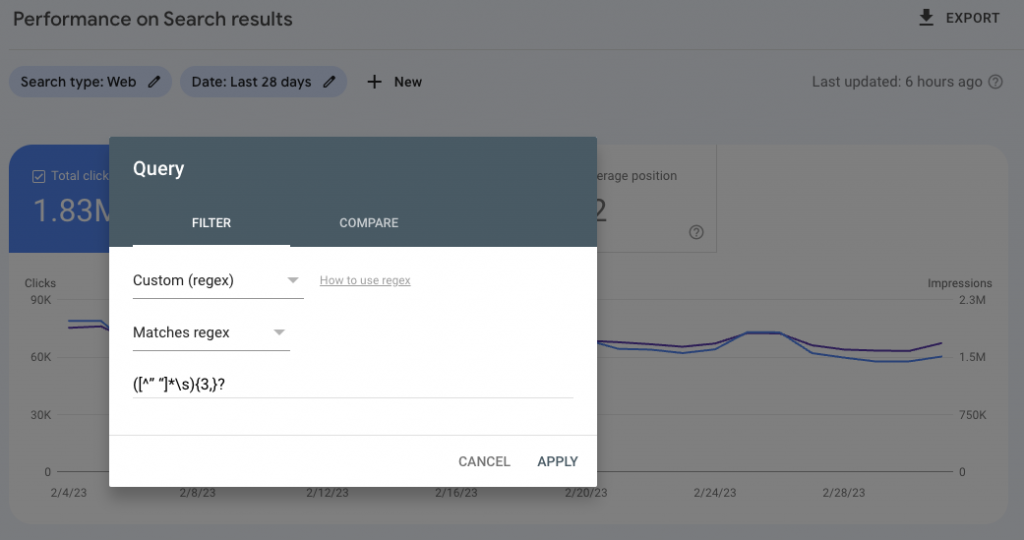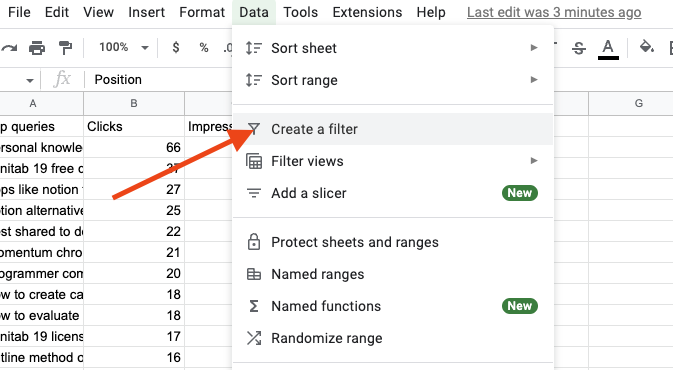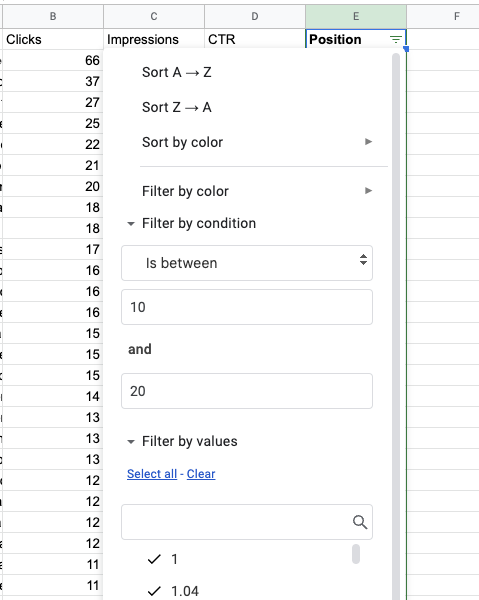These are a couple of really easy ways to find long-tail queries that your site might be underserving.
1) Go to Google Search Console and select Search Results
2) Change the date filter to the last 28 days
3) Add a query filter

4) Select Custom (regex)
5) Select Matches regex
6) Enter ([^” “]*\s){3,}?

7) Export this to Google Sheets.
8) Create a filter in row E by selecting the row and going to Data >>> Create a filter.

9) Click the filter icon and choose Filter by condition >>> Is between >>> and select values of 10 and 20.

Now you have all queries that are 4 words or longer and have an average position between 10-20. These are keywords you can look at targeting to move up to page one to boost traffic.
Variations
There are some variations you can do with this.
You can do this for just a specific page on a site.
For a very popular site with a lot of high rankings, you will need to do this on a per page basis. GSC has a limit of 1000 queries it will show at one time. When I use the site above, I have over 1000 queries in the top 5, so it won’t pull queries ranking on page 2.
To do this, simply add a page filter and select the URL you want to use.
You can also select a specific URL path. If you want to just look for terms under a specific category on your blog you would choose /blog/category/ for the page filter. **Another reason why it is a good idea to add categories to your URL structure.**
You could do this for generating new topic ideas.
Instead of sorting between positions 10 and 20, sor between 40-70 (or some other range you choose). These are terms that are related to your content but your current content is not serving well. You likely would want to create new pages for most of these terms instead of trying to move them up on current pages.
Use a different regex expression to sort by character count instead
If you wanted to sort by character count instead of word count, you could do that as well. Instead of the regex expression mentioned above, use ^[\w\W\s\S]{25,}. This will give you all queries over 25 characters. Again, you can adjust it by changing the 25 for longer or shorter queries.
Combine regex expressions
For example ([^” “]*\s){3,}?.*note.* will pull all queries that are 4 or more words and inclue ‘note’ in them.
This will not include just ‘note’ as a word on its own. It would also include terms like noteworthy, noteable, etc.

